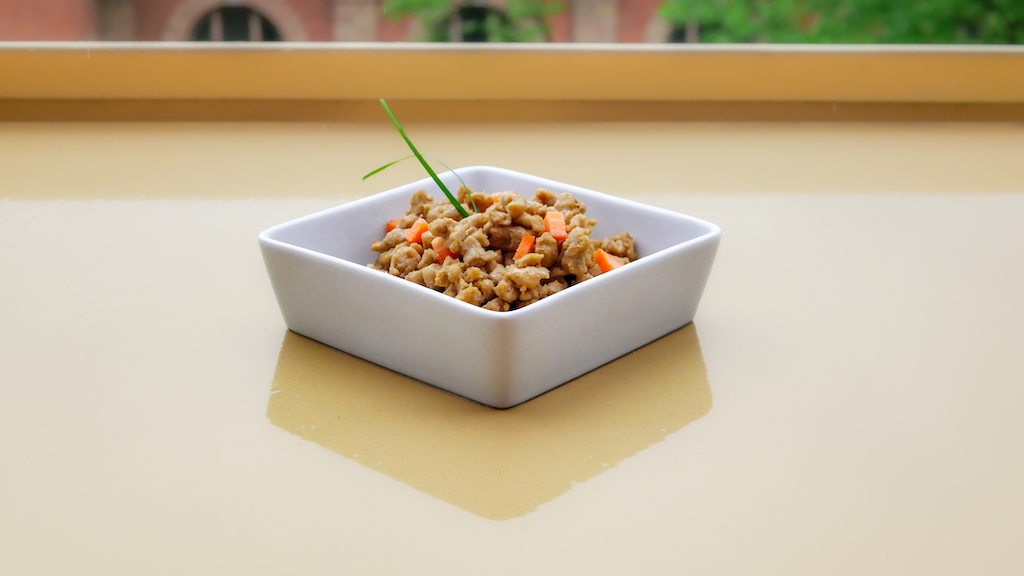Because Animals Rebrands to BioCraft As It Doubles Down on Cultivated Pet Food
3 Mins Read
BioCraft Pet Nutrition, previously known as Because Animals, has unveiled its rebranded identity as part of its focus on revolutionizing the pet food industry through the development and commercialization of cultivated meat.
Biocraft was the first biotech company to develop cultivated meat for the pet food market; in 2021 it debuted the first mouse meat for cats made from cell samples.
With its rebrand, the company aims to dedicate its resources entirely to the advancement of cultivated meat, including research and development, infrastructure, and collaborative relationships. In line with this decision, the company discontinued its plant-based product line under the Because Animals brand in late 2022.
BioCraft Pet Nutrition
“As we intensified our focus on developing cultured meat for pet food manufacturers, and built up our scientific efforts, it was appropriate to claim a new identity that signals the state of the art in pet nutrition,” BioCraft founder and CEO Dr. Shannon Falconer, said in a statement.
One of the key advantages of its cultivated meat, says BioCraft, is its freedom from chemical and bacterial contaminants, antibiotics, euthanizing drugs, steroids, genetic engineering, and genetically modified organisms. BioCraft’s meat also significantly reduces the risks of pathogens such as Salmonella, E. coli, and other common bacteria that can result in costly recalls.

BioCraft says its cultivated meat closely resembles the “meat slurry” traditionally used in pet food manufacturing but its meat comes from premium cell lines and is grown in pathogen-free mediums. The similarity to conventional meat allows for a seamless replacement in various pet food formats, including wet or dry foods, treats, and fresh options.
Unlike conventional pet foods that require the addition of synthetic nutrients, BioCraft’s meats are formulated to provide essential proteins, vitamins, fats, and amino acids like taurine, which are often lost during traditional high-heat processing in most commercial pet food.
BioCraft says it is actively establishing partnerships with leading pet food manufacturers interested in integrating cultivated meat into their product offerings.
Conventional pet food
Conventional meat production is a leading cause of climate change, responsible for 15 percent of greenhouse gas emissions. More than 25 percent of the environmental impact of animal agriculture in the U.S. can be attributed to pet food consumption, the company says. If cats and dogs were considered their own nation, they would rank as the world’s fifth-largest meat-consuming entity.

To accelerate product development and strengthen its technical and commercial capabilities, BioCraft has appointed Dr. Theresa Rothenbücher as its chief product officer. Dr. Rothenbücher, co-founder and former chief scientific officer of Revo Foods, brings a wealth of expertise in high-precision 3D food-printing technology, molecular biology, tissue engineering, and food technology innovation. Her experience as an entrepreneur introducing products to the European market enhances BioCraft’s position as a leading provider of cultivated meat for the pet food supply chain.
“Bringing in Theresa’s experience in tissue engineering and product development multiplies our strengths, and puts us on the path to becoming the leading provider of cultured meat for the pet food supply chain,” Falconer said.
Dr. Rothenbücher joins Dr. Chai Molina, chief computational officer, who has been instrumental in BioCraft’s mathematical modeling and AI initiatives since joining the company in 2022. With a Ph.D. in Mathematics and an MSc in theoretical and mathematical biology, Dr. Molina’s exceptional work in mathematical modeling of biological systems has garnered recognition from the Canadian Applied and Industrial Mathematics Society.



